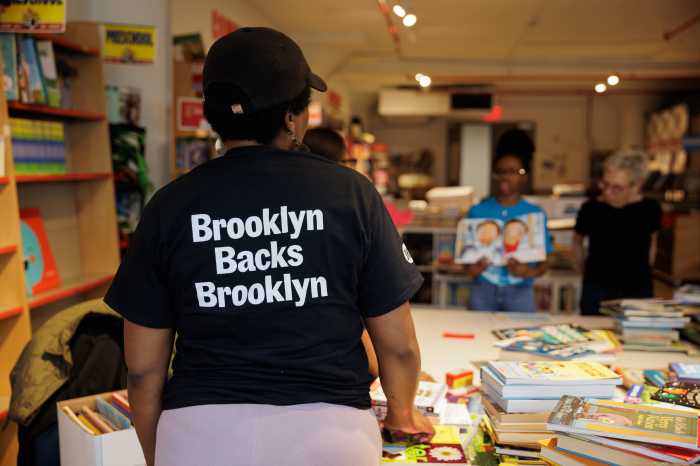The outstanding film “Ajami” is named after the multi-ethnic neighborhood in Tel Aviv’s Jaffa port district where this drama unfolds in five overlapping chapters. Co-directed by Palestinian Scandar Copti and Israeli Yaron Shani — at times in almost documentary fashion — the film addresses issues of family, crime, violence, forbidden love, and more as it catapults viewers into an intense urban war zone.
The film opens with the murder of an innocent neighborhood youth, which sets in motion additional events with deadly consequences. Omar (Shahir Kabaha), a Muslim, was the assassin’s intended target, and subsequently he needs to raise protection money. Resorting to selling drugs, he enlists the aid of Malek (Ibrahim Frege), an illegal Palestinian, but things go awry when Dando (Eran Naim), an Israeli cop, ambushes them as a deal goes down.
Violence, Its Moral Dimensions Propel “Ajami”
The filmmakers, in town recently for the New York Jewish Film Festival, spoke about their collaboration, which began eight years ago when Scandar submitted a film to a Tel Aviv student film festival Shani was curating.
“There was this Jaffa project to have non-professionals make films, so I made a twelve-minute mockumentary,” Copti said. “I met Yaron, we became friends, and he proposed we write together.” With a laugh, he added, “And so I began this tough life with this crazy man!”
The warm rapport between the two filmmakers has made for a vibrant collaboration. Each recounted how they decided every technical and artistic decision together, working to find solutions satisfactory to both whenever a conflict arose. The film explores sensitive questions about religion, community, and society, so the pairing of their respective points of view created a unique and powerful film.
Copti and Scandar’s most intensely collaborative efforts came in writing the screenplay, which is based on real events in Jaffa. After they finished writing, they selected a group of non-professional performers whose lives matched as closely as possible the characters they play — a cop character, for example, was played by a real cop — and workshopped the performers for almost a year to prepare them for filming.
Copti, who has a pivotal role in the film, and Shani approached shooting the film by letting the actors experience the story in real time. “They lived it as if it was really happening to them,” Shani said, explaining that “Ajami” was shot chronologically and that the cast members were not given a script. As a result, he said, their reactions to the events on screen were “real.”
The filmmakers, however, pieced the story together in a disjointed narrative structure that includes blackouts, unorthodox edits, and scenes shown from multiple points of view, creating a Möbius-strip effect that accents the moral dimensions of each character’s decisions, some of which result in sudden violence.
“We wanted to have the opportunity for the audience to really get into the mind of those people and go through what they do, feel what they feel, and be surprised when they are,” said Copti. “We didn’t want them to be seen from above. We wanted to put everything cinematic aside to bring forward the characters and what they are going through.”
The complex narrative requires considerable concentration, but this involving story pays off when the plotlines converge.
The story is told from the perspective of Nasri (Fouad Habash), Omar’s brother. A young would-be cartoonist, his perspective “frames the puzzle” as Shani described: “Nasri understands the meaning of violence and all the horrors around him. He is frightened. His point of view is the way to understand the consequences of all this violence.”
Jaffa is seen in this film as a hostile crucible where the rules of the street supersede both the law and family dynamics; the details of that life make “Ajami” the compelling and affecting film it is. Working with characters riven by ethnic and religious differences, Copti and Shani choose to magnify their similarities.
“Every struggle comes from the same basic needs and emotions,” Shani explained. “Everyone is fighting for good. The conflicts [arise] when someone feels his loved ones are being threatened. They want to live safe and free in a segregated reality, which is very hard.”
“Ajami” has a universal message, Copti continued, regardless of how far one’s life is from the specifics of its story; appreciating its meaning does not require “a knowledge of Israel. It’s powerful because it’s a basic human drama about people trying to have a good life, and the differences between their perspectives lead to tragedy.”
The film suggests that no matter how devastating the violence and tragedy the characters experience become, it is hard for them to know what another kind of life would be like. The actors bring authenticity to that truth.
“The realism is more than what we wrote in the script, it is what the [actors] themselves brought — in their history and their energy — to the characters,” Shani said. “A scene of the violence between two neighbors might seem simple, but behind those actions you have many layers of history, frustration, and problems, and if you know them, all this violence makes a lot a sense.”
“Ajami” is a bold statement about how different cultures can only live together by forging tolerance and a middle ground. Leave it to an Israeli and a Palestinian to make a film together that allows this message to resonate.
Complete Information:
AJAMI
Directed by Scandar Copti
and Yaron Shandi
Kino International Releasing
Film Forum
209 W. Houston St.


































